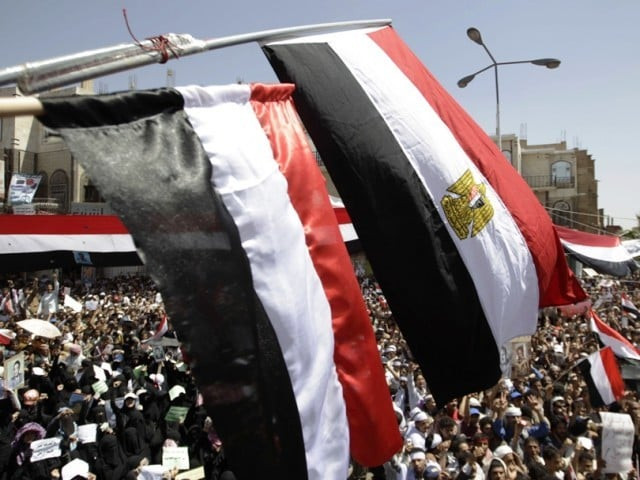The School of Oriental and African Studies London, recently published a paper by Dr Adam Hanieh, (Hanieh is originally from Palestine, currently teaching at SOAS), in which he shed some very needed light on the Arab Spring and particularly on the real socio-economic situation of Egypt.
Dr Hanieh points out that there were some concrete realities, relating to the socio-economic policies of Mubarak’s regime, which forced the bulk of Egyptians on to the streets to demonstrate their anger and frustration. For example, the inflation rate was greater than 10 per cent, and it had risen to more than 20% for food products. According to the official estimates of the national income threshold of poverty, 40% of Egyptians were living in poverty.
Logically, the animosity of the Egyptians had steeply been rising, and to curb this growing frustration, Mubarak came up with a plan to increase the wages of public employees by 15%. This cost the government around $1.2 billion. Similarly the government increased its expenditure on health and education to facilitate people in order to calm them down. Furthermore, Egypt had been an importer of oil, and oil subsidies by the government amounted to $16.6 billion annually. Thus, overall the government was in severe crisis and under huge debt at the time of uprising. To add to this, the political instability in the country had damaged the tourism industry, which only accounted for 5.3% of total GDP in 2010, generating an income of $12 billion.
It, thus, goes without saying that the new government after Mubarak has a huge task at hand if they really want to improve the ground economic reality of the common people of Egypt. However, the International Financial Institutions (IFI’s) has regarded this as an opportunity to further prolong their financial agenda of neo-liberalization of the Middle East. We are all well aware that the IFI and western powers love democracy (although one would disagree with this delusionary abstraction based on the fact that they have been supporting Mubarak for last few decades).
All that aside, now that democracy is coming to Egypt, it will come based on some conditions. Any aid or forgiveness to Egypt is linked with its commitment to further privatize all the publicly owned enterprises through the medium of Public-Private Partnerships (PPP’s). President Barack Obama has promised Egypt that the United States will forgive $1 billion of Egypt’s loan payment to the US, but that money has to be used under the dictation of US. Similarly the World Bank and IMF have made an announcement to grant a loan of $6 billion to Egypt, as long as they do the following: They have to open up all their markets to foreign investment, they have to reduce tariffs, and they must indulge in large scale privatization of state owned enterprises.
The uprising of the Egyptian people was a pleasant change for the country, and for the region. They were protesting not only against the dictatorial rule of Mubarak, but also against the whole socio-economic system. However, the ruling establishment of Egypt, with the help of western powers has portrayed this as simply a revolt against Mubarak. On the contrary, it was a movement against the putrefying system which was spearheaded by Mubarak.
However, Western powers through the IFI’s are imposing neo-liberal economic policies on the people of Egypt, and these policies will only benefit the IFI’s, the military, and the business elites of the Egypt. Sadly, the life of a common Egyptian will not improve by much. The neo-liberal policies of privatization and deregulation will do no good to the common Egyptian. Rather, these policies are just another tool in the hands of the International Financial Institutions to amass more wealth out of the working people of the Egypt.
The financial reality of a democratic Egypt
The democracy that the West and IFI's want for Egypt will not have much of an impact on the common Egyptian.



COMMENTS
Comments are moderated and generally will be posted if they are on-topic and not abusive.
For more information, please see our Comments FAQ